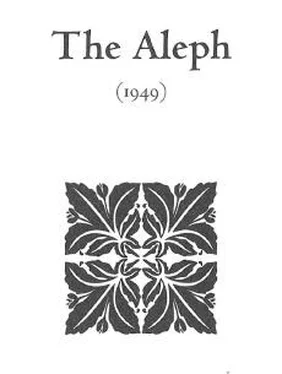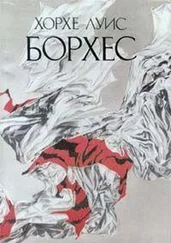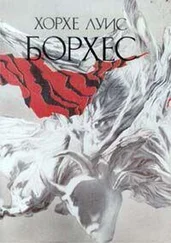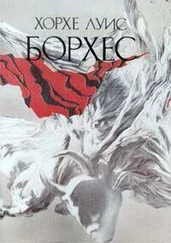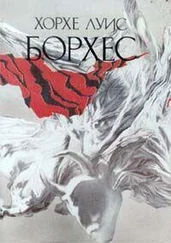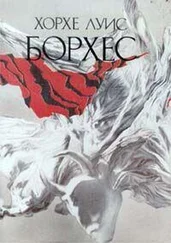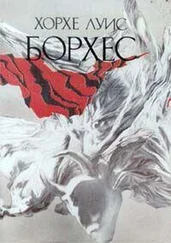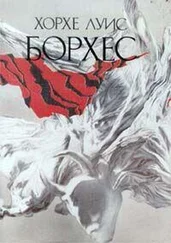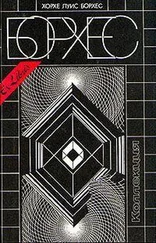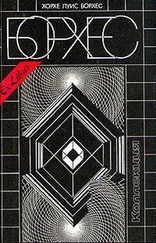Хорхе Борхес - Collected Fictions
Здесь есть возможность читать онлайн «Хорхе Борхес - Collected Fictions» весь текст электронной книги совершенно бесплатно (целиком полную версию без сокращений). В некоторых случаях можно слушать аудио, скачать через торрент в формате fb2 и присутствует краткое содержание. Год выпуска: 1999, ISBN: 1999, Издательство: Penguin (UK), Жанр: Старинная литература, на английском языке. Описание произведения, (предисловие) а так же отзывы посетителей доступны на портале библиотеки ЛибКат.
- Название:Collected Fictions
- Автор:
- Издательство:Penguin (UK)
- Жанр:
- Год:1999
- ISBN:9780140286809
- Рейтинг книги:5 / 5. Голосов: 1
-
Избранное:Добавить в избранное
- Отзывы:
-
Ваша оценка:
- 100
- 1
- 2
- 3
- 4
- 5
Collected Fictions: краткое содержание, описание и аннотация
Предлагаем к чтению аннотацию, описание, краткое содержание или предисловие (зависит от того, что написал сам автор книги «Collected Fictions»). Если вы не нашли необходимую информацию о книге — напишите в комментариях, мы постараемся отыскать её.
Collected Fictions — читать онлайн бесплатно полную книгу (весь текст) целиком
Ниже представлен текст книги, разбитый по страницам. Система сохранения места последней прочитанной страницы, позволяет с удобством читать онлайн бесплатно книгу «Collected Fictions», без необходимости каждый раз заново искать на чём Вы остановились. Поставьте закладку, и сможете в любой момент перейти на страницу, на которой закончили чтение.
Интервал:
Закладка:
Rereading what I have written, I see that I have committed a fundamental error. Led astray by the habit of that good or bad literature wrongly called psychology, I have attempted to recover—I don't know why—the linear chronology of my find. Instead, I should have stressed the monstrousness of the disks.
If someone were to tell me that there are unicorns on the moon, I could accept or reject the report, or suspend judgment, but it is something I could imagine. If, on the other hand, I were told that six or seven unicorns on the moon could be three, I would declare a priori that such a thing was impossible. The man who has learned that three plus one are four doesn't have to go through a proof of that assertion with coins, or dice, or chess pieces, or pencils. He knows it, and that's that. He cannot conceive a different sum. There are mathematicians who say that three plus one is a tautology for four, a different way of saying " four "... But I, Alexander Craigie, of all men on earth, was fated to discover the only objects that contradict that essential law of the human mind.
At first I was in a sort of agony, fearing that I'd gone mad; since then, I have come to believe that it would have been better had I been merely insane, for my personal hallucinations would be less disturbing than the discovery that the universe can tolerate disorder. If three plus one can be two, or fourteen, then reason is madness.
During that time, I often dreamed about the stones. The fact that the dream did not recur every night left me a sliver of hope, though a hope that soon turned to terror. The dream was always more or less the same; the beforening heralded the feared end. A spiral staircase—an iron railing and a few iron treads—and then a cellar, or system of cellars, leading through the depths to other stairways that might abruptly end, or suddenly lead into ironworks, locksmith's forges, dungeons, or swamps. At the bottom, in their expected crevice in the earth, the stones, which were also Behemoth, or Leviathan—the creatures of the Scriptures that signify that God is irrational. I would awaken trembling, and there the stones would be, in their box, ready to transform themselves.
The villagers' attitude toward me began to change. I had been touched by something of the divinity that inhered in the stones the villagers had named "blue tigers," but I was also known to have profaned the summit. At any moment of the night, at any moment of the day, the gods might punish me. The villagers dared not attack me or condemn what I had done, but I noticed that everyone was now dangerously servile. I never again laid eyes on the child who had played with the stones. I feared poison, or a knife in the back. One morning before dawn I slipped out of the village. I sensed that its entire population had been keeping an eye on me, and that my escape would be a relief to them. Since that first morning, no one had ever asked to see the stones.
I returned to Lahore, the handful of disks in my pocket. The familiar environment of my books did not bring the relief I sought. That abominable village, and the jungle, and the jungle's thorny slope rising to the plateau, and on the plateau the little crevices, and within the crevices, the stones—all that, I felt, continued to exist on the planet. My dreams confused and multiplied those dissimilar things. The village was the stones, the jungle was the swamp, the swamp was the jungle.
I shunned the company of my friends. I feared that I would yield to the temptation of showing them that dreadful miracle that undermined humanity's science.
I performed several experiments. I made a cross-shaped incision in one of the disks, put that disk with the others, and shuffled them around; within one or two conversions, I had lost it, though the number of disks had increased. I performed an analogous test with a disk from which I filed a semicircular notch.
That disk also disappeared. I punched a hole in the center of one disk with an awl and tried the test again. That disk disappeared forever. The next day the disk with the cross cut in it reappeared from its journey into the void. What mysterious sort of space was this, which in obedience to inscrutable laws or some inhuman will absorbed the stones and then in time threw an occasional one back again?
The same yearning for order that had created mathematics in the first place made me seek some order in that aberration of mathematics, the insensate stones that propagate themselves. I attempted to find a law within their unpredictable variations. I devoted days and nights alike to establishing statistics on the changes. From that stage of my investigations I still have several notebooks, vainly filled with ciphers.
My procedure was this: I would count the stones by eye and write down the figure. Then I would divide them into two handfuls that I would scatter separately on the table. I would count the two totals, note them down, and repeat the operation. This search for order, for a secret design within the rotations, led nowhere. The largest number of stones I counted was 419; the smallest, three. There was a moment when I hoped, or feared, that they would disappear altogether. It took little experimenting to show that one of the disks, isolated from the others, could not multiply or disappear.
Naturally, the four mathematical operations—adding, subtracting, multiplying, and dividing—were impossible. The stones resisted arithmetic as they did the calculation of probability. Forty disks, divided, might become nine; those nine in turn divided might yield three hundred. I do not know how much they weighed. I did not have recourse to a scale, but I am sure that their weight was constant, and light. Their color was always that same blue.
These operations helped save me from madness. As I manipulated the stones that destroyed the science of mathematics, more than once I thought of those Greek stones that were the first ciphers and that had been passed down to so many languages as the word "calculus." Mathematics, I told myself, had its origin, and now has its end, in stones. If Pythagoras had worked with these...
After about a month I realized that there was no way out of the chaos. There lay the unruly disks, there lay the constant temptation to touch them, to feel that tickling sensation once more, to scatter them, to watch them increase or decrease, and to note whether they came out odd or even. I came to fear that they would contaminate other things—particularly the fingers that insisted upon handling them.
For several days I imposed upon myself the private obligation to think continually about the stones, because I knew that forgetting them was possible only for a moment, and that rediscovering my torment would be unbearable.
I did not sleep the night of February 10. After a walk that led me far into the dawn, I passed through the gates of the mosque of Wazil Khan. It was the hour at which light has not yet revealed the colors of things. There was not a soul in the courtyard. Not knowing why, I plunged my hands into the water of the fountain of ablutions. Inside the mosque, it occurred to me that God and Allah are two names for a single, inconceivable Being, and I prayed aloud that I be freed from my burden. Unmoving, I awaited some reply.
I heard no steps, but a voice, quite close, spoke to me:
"I am here."
A beggar was standing beside me. In the soft light I could make out his turban, his sightless eyes, his sallow skin, his gray beard. He was not very tall.
Читать дальшеИнтервал:
Закладка:
Похожие книги на «Collected Fictions»
Представляем Вашему вниманию похожие книги на «Collected Fictions» списком для выбора. Мы отобрали схожую по названию и смыслу литературу в надежде предоставить читателям больше вариантов отыскать новые, интересные, ещё непрочитанные произведения.
Обсуждение, отзывы о книге «Collected Fictions» и просто собственные мнения читателей. Оставьте ваши комментарии, напишите, что Вы думаете о произведении, его смысле или главных героях. Укажите что конкретно понравилось, а что нет, и почему Вы так считаете.
